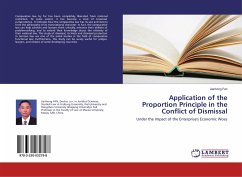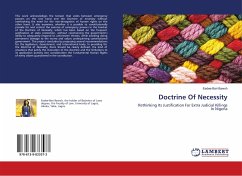Privacy is a concept that has evolved a lot in the past century. After a long delay in adopting data protection laws when compared to other countries, Italy put up a steep pace and introduced a novelty in the law currently in force, d.lgs. 196/03: the principle of necessity. This provision, significantly located among the three "top principles" in data protection, imposes on data controllers a limitation on the use of personal data. This work slowly zooms in on the principle of necessity: after a survey of the various approaches to a privacy law in the international scene, with a major attention to the European context, the focus is centered on art. 3 of the Italian law, containing the principle of necessity, from a general explanation to theoretical literature on the subject and the application performed so far by the Guarantor. The conclusive analysis tries to highlight the strengths and weaknesses of the provision by putting it in the perspective of its natural application field: a society where information, and even more the Internet, have dramatically changed the business models and favored the birth of new, opposing interests.








